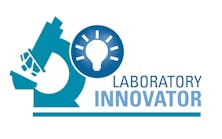Study: drug stimulates immune system to kill infected cells in animal model of hepatitis B infection
A novel drug developed by biopharmaceutical company Gilead Sciences was tested in an animal model at the Texas Biomedical Research Institute in San Antonio, and it was found to suppress hepatitis B virus infection by stimulating the immune system and inducing loss of infected cells. A report co-authored by scientists from Texas Biomed and Gilead Sciences appears in the May issue of Gastroenterology.
In a study conducted at Texas Biomed's Southwest National Primate Research Center, researchers found that the immune modulator GS-9620, which targets a receptor on immune cells, reduced both the virus levels and the number of infected liver cells in chimpanzees chronically infected with hepatitis B virus (HBV). Chimpanzees are the only species other than humans that can be infected by HBV. Therefore, the results from this study were critical in moving the drug forward to human clinical trials, now in progress.
The current therapy for HBV infection targets the virus, suppressing viral replication and delaying progression of liver disease, but it is a lifelong therapy that does not provide a cure. “This GS-9620 therapy represents the first conceptually new treatment for HBV in more than a decade, and combining it with the existing antiviral therapy could be transformative in dealing with this disease,” says study co-author Robert E. Lanford, PhD.
The Gilead drug binds a receptor called Toll-Like Receptor 7 that is present in immune cells. The receptor normally recognizes invading viruses and triggers the immune system to suppress viral replication by the innate immune response and kill infected cells by the adaptive immune response, thus orchestrating both arms of the immune system. Read the article abstract.




